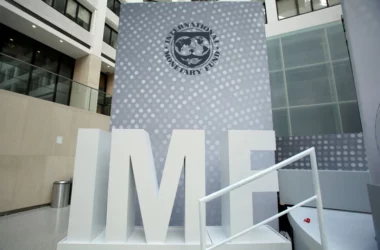
Two things have become very apparent over the last year or so that I’ve taken keener interest in the Gambia and Gambians – albeit from a socio-political perspective.
One of the observations has now been reinforced – more than once as I keep tabs on two applications in the running for the 2019 Summer Internship Program. This observation has been further corroborated by a 2018 Bloomberg piece by Justin Fox titled “Want Educated Immigrants? Let in More Africans”.
People from the Gambia are increasingly (being) recognized as some of the most talented and hardest-working people in the marketplace of global talent and ideas – certainly in North America.
The Bloomberg article puts the Gambia behind other countries for example Bulgaria and Ghana as the “hardest working immigrant group in the US” and after Saudi Arabia, the Gambia joins Nigeria, Nepal and Ghana, Kenya atop the countries with the highest percentage of residents enrolled in higher education – also in the US:
The second observation is one I have relentlessly hammered on that the Gambia’s leadership continues to do the globally-recognized talent pool a huge disservice by failing to create a nurturing environment for said talent to thrive and solve local problems.
The offshoot of the fore-going is rather that “unpatriotic” view: for example, Jeggan Grey Johnson, Yusupha Jobe, Oumie Andrews, Olley-Dibba Wadda, Ndey Jobarteh, Neneh LouLane Khan,Maimuna Sey,Lamdou bundou Sey,Dr.Lamin Conteh, Femi Mahoney Abdul Savage, Abdoulie Drammeh, Ousman Jammeh, Sainey Darboe,Sulayman Bah,Dr.Yunus Hydara and many other Diaspora Gambians like LeBron James, take their talents to whichever market is ready and willing to pay for it.
In engaging professionals at prestigious universities, fellowship programs and within the local tech/biotech communities who have worked with Gambians (though some have simply met/interacted with them informally), adjectives such as “hard working”, “industrious”, “professional”, “skilled” and many other laudatory characterizations are commonplace – in describing the experience/engagement or exchange. “He was so polite in the pre-amble to the email”. “Her sense of urgency is commendable – as are her educational accomplishments”. “It makes it easy for me to want to help them succeed regardless of the obviously daunting logistics involved. I am sure where there is a will, there is a way.”
The foregoing are real-life expressions/comments made by someone in a decision-making position – about their review of CVs from and interactions with Gambian applicants.
Somehow, Gambians have continued to excel despite a country and a leadership that does very little to inspire confidence and/or nurture their talent. This seeming disconnect does not come as a surprise given the similarities in the country’s educational foundation and Singapore, Gambia’s peers from 54 years.
The former is a perennial podium finisher in the international Programme for International Student Assessment Testing (PISA). PISA ranks participating 15-year-olds (and their OECD countries) in Math, Reading and Science)
One of the pillars Lew Kuan Yew used to foundationalize Singapore’s development back in the 60s and 70s is seen in the chapter titled “Nurturing and Attracting Talent” (Ch. 10). (“From Third World to First: The Singapore Story: 1965-2000”) While Gambians and their leaders seem to think that land is a society’s most precious asset, Yew saw human talent as his country’s most precious asset. (p135). This reality, much like Israel’s, was predicated on the dearth of land mass and natural resources in the small island-nation.
Like the Gambia, Singapore inherited the British educational system with institutions teaching arts and sciences. To continue this cycle, Singapore invested heavily in improving the existing/former British-only and British-run institutions and building new ones to reflect best-in-class and best practices. The investments and improvements in education were done in both public and in private schools.
The elitist nature of some of Kuan Yew (educational) policies aside, the man incentivized couples to (a) have more children given Singapore’s then-low birth rate and (b) put a premium on their children’s education from the get-go.
The incentives included tax concessions and priority placement/entry into the country’s top schools for achieving students – regardless of their ability to afford the required fees and/or other payments.
The government of Singapore then followed up the pillar (of nurturing and attracting the country’s human talent) with an annual release of statistical analysis of the country’s student and parent profile. This analysis gave the policymakers data/tools to allow them to make the necessary adjustments year-to-year.
While some of the deep-rooted cultural biases such as inter-racial marriage, elitism and classism were unresolved by the time Kuan Yew left office in 1990 (he died in 2015), he had the foresight to set them in motion and see their mostly positive impact realized.
Lee Kuan Yew’s meritocratic multiculturalism combined with his LSE-honed long-term social and economic planning chops created one of the world’s best-run society which not only nurtured (and continues to nurture) home-grown talent, Singapore draws some of the world’s best and brightest to set up camp in one of the world’s better-performing economies not to mention its safest.
To be clear, Singapore’s first prime minister instituted other policies and coupled said policies with a strictness of leadership that bordered on authoritarianism to achieve the success he nurtured then bequeathed his small island-nation.
However, the conscious decision to blend Singapore’s very diverse population (“Many Tongues, One Language” – Ch. 11) into a cohesive, competent and incorruptible asset went on to create a now-self-sustaining economy whose unemployment rate stands at 2.2% (Trending Economies – 2018).
Putting aside the increasingly inward-looking nationalistic ethos sweeping many countries across the world, Gambians should not be ashamed of taking their intellect and talents across the oceans, to economies that are better run and are willing to pay for them!












